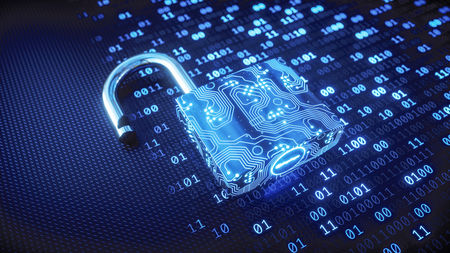What is quantum cryptography? The short answer is that quantum cryptography is simply a field that studies how quantum computers could affect the ability to store and secure data.
What is Quantum Cryptography — Background
The computational power of quantum devices is a double-edge sword in the field of cryptography. Quantum computers are both a threat to the current ways we protect data and messages, but the technology also offers a range of solutions, including several theoretical paths to unhackable data storage and transference.
What is Quantum Cryptography — Problem

“We live on the edge because none of the cryptographic systems we use are proven secure in the sense that there’s no mathematical proof that these things cannot be broken.” —Massachusetts Institute of Technology mathematician Vinod Vaikuntanathan
Current methods to safeguard data, such as the Rivest-Shamir-Adleman algorithm, better known as RSA, use algorithms, usually based on mathematical principles, to encrypt data so only designated parties have access to the information. While these algorithms remain exceedingly difficult for classical computers to crack, the shear computational wizardry of an adequately powered quantum computer could easily break these encryption methods.
This would allow bad actors the opportunity to look over top secret messages that are important to national security, encrypted business statements and even banking and financial transactions.
In other words, the world’s entire economic and security system would be at risk.
What is Quantum Cryptography — Solutions
In the strange world of quantum, blessings and curses are evenly balanced and quantum solutions are available to neutralize these quantum threats.
Post-quantum cryptography offers several algorithmic solutions that are thought to be safe against quantum attacks. Essentially, cryptographers are currently creating algorithms to counter quantum computing’s power. So far, dozens of these post-quantum cryptographic methods are being investigated.
Another technique to counter potential quantum hackers is the quantum key distribution. As it name suggests quantum key distribution uses quantum technology to generate keys that are shared between parties.
In what some companies are referring to a “entropy-as-a-service,” experts theorize that using cloud-based quantum technology to generate truly random numbers that would serve as — in theory — completely unpredictable keys, so unpredictable that it would be impossible for cybercriminals to guess and use to hack into data.
What is Quantum Cryptography — Timeline
The question :What is Quantum Cryptography is usually quickly followed with: When will I need Quantum Cryptography?
The answer is… we don’t know for sure. Predictions on when quantum computers will be robust enough to crack current encryption methods range from about lunch time today to lunch time a few decades from now.
No matter what the timeline is, though, cybersecurity experts recommend you prepare for this “when-not-if” scenario today.
In fact, as Duncan Jones, head of Quantinuum’s cybersecurity chief points out, today’s — and even yesterday’s — data is vulnerable to tomorrow’s quantum computers: “As soon as we cross this point in time when quantum computers are able to unpick this data, then you would technically be able to read the past like an open book. The question that companies and organizations — particularly governments and the military — need to be asking is: ‘Are we sharing something today that will still have value to somebody in ten years time?’”
You can learn more about companies that are tackling the quantum cryptography threat on TQI’s data and intelligence platform.
If you found this article to be informative, you can explore more current quantum news here, exclusives, interviews, and podcasts.













